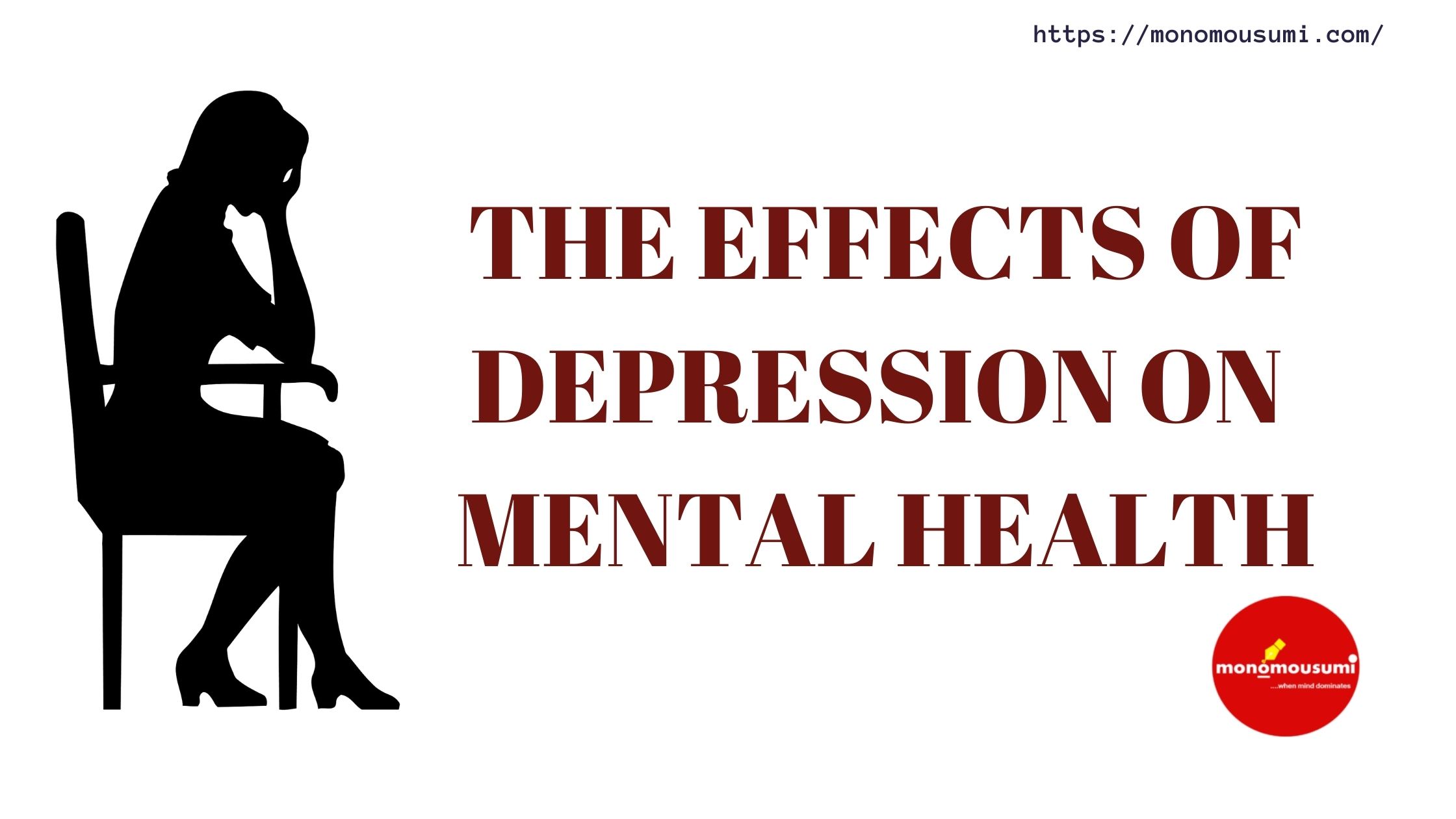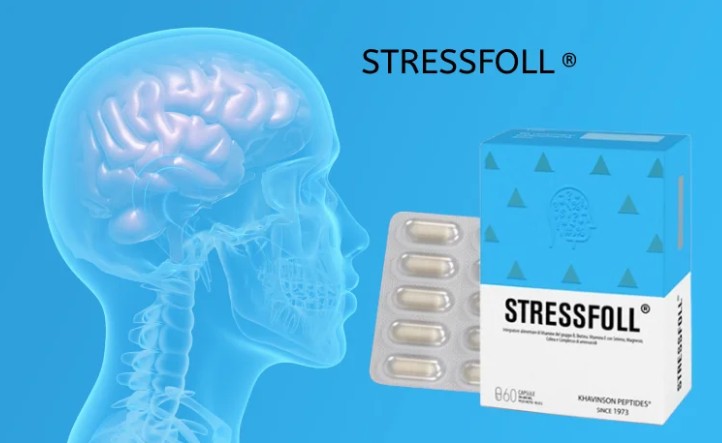
What is Depression?
Depression is most often referred to as a mood disorder. It is a serious medical illness that negatively affects our social well-being, psychological well-being, physical well-being and our mental health at large. According to World Health Organization W.H.O, more than 264 million people of all ages suffer from depression globally.
Our mental health is the brain box of our physical and psychological well-being. What it means in essence is that; an abnormality in mental health in most cases results in a physical or psychological breakdown. There are factors that trigger an imbalance in our mental health, they include; stress, depression, accidents, sad events or happenings, unpleasant odors or taste, noise pollution, lost of vital organs and so on. Amongst all the numerous factors that provoke an imbalance to our mental health, depression has overtime proven to be one of the most dangerous and severe, following the fact that it is long termed unlike stress which could be over in a short term and also paying attention to the death and suicide it has triggered.
There are a handful of reasons as to why depression is tagged to be very dangerous. Taking a detailed glimpse on statistics by W.H.O, it alludes to direct our attention to the rate at which depression keeps diffusing voraciously all over the world on a regular. Depression incorporates and fuses into itself some factors that cause a negative mental health, which makes its effects irresistibly unbearable.
Dr Dorothy Rowe (17 December 1930 _ 25 March 2019), an Australian psychologist, said in one of her quotes “depression is a prison where you are the suffering prisoner and the cruel jailer”. Most times, depression isn’t always noticeable, many people go to the extent of hiding it from people and cases like that very dangerous, and so it’s important to know the effects of depression on your mental health.
The feeling of depression, the effects and the symptoms varies in men, women and children. Yes, children too are liable to get depressed, but their natural ignorance as kids won’t make them realize that they are depressed.
When a child is depressed, you should notice some abnormalities in the physical and psychological well-being such as;
- Loss of energy, changes in appetite (mostly at the early stages of depression).
- Possible weight loss later.
- The Child also exhibits some unusual change in behaviors such as; Avoiding friends or siblings,
- Thoughts of death and suicide.
- Other effects and symbols include: intense sadness, frequent crying, feelings of incompetence, difficulty in sleeping or sleeping too much, and most times always angry.
In adults, the symptoms and effects include:
- Thinking or talking more slowly,
- Irritability.
- Feeling sad or empty.
- Anxious feelings of hopelessness.
- Loss of interest in activities.
- Withdrawing from social engagements
- Difficulty sleeping through the nights or sleeping too much
- Decreased energy.
- Changes in appetite.
- Absent mindedness feeling tired easily,
- Thoughts of suicide,
- Drinking excessively (mostly common in men),
- Engaging in high risk activities,
- Inability to concentrate at work,
- Difficulty completing tasks, delayed responses during conversation.
When we carefully examine the effect of depression, it is crystal clear that a depressed person is subconsciously deprived of performing normal daily activities. An average human being is mandated to an 8-hours sleep every 24 hours, whereas a depressed person can barely get 2 hours of sleep in a whole day. These can after a long time result in brain damage as a result of excessive thinking. In a case whereby a depressed person is having feelings of hopelessness, it usually gives rise to other effect like the loss of appetite, and lack of interest to engage in usual activities which is capable of infusing the thoughts of death of suicide into the patient’s thought. Depression can be termed to be a virus; it eats you, and destroys your mental health gradually until your mind is beyond repair.
- Depression may be caused by the occurrence of a sad event such as; the death of a loved one, family or friends.
- Memories of unpleasant childhood experience or,
- The loss of a vital organ in the body.
- Failed project or business.
- Convicted unjustly.
Just imagine a normal young man losing his ability to see again after a fatal accident, we really don’t want to talk about all the thoughts that will be going through his head for the first 3 weeks of his new life, and that’s the beginning of his depression. In cases where a person loses a close family, the depression is most times unavoidable depending on the relationship that existed between them, and he/she could suffer depression for a very long time if left alone without the company of another close family or friend.
Having highlighted some possible causes of depression, we cannot confidently say that there is a particular cure for depression. Neither can we say depression can be avoided as in the case of losing a loved one. It is so because; the cause of depression and the degree of depression varies. However, there are healthy tips on how to either reduce or curve its severity to save your mental health from crashing. There are so many lifestyle changes that one could practice avoiding the trigger, but first you need to make yourself aware of the dangers upfront should you fail to stop the trigger.
Below are a few tips and lifestyle practices that could help improve our mental health positively and reduce the severity of depression.
- Exercise regularly; it increases your body temperature and helps to calm the nervous system. Regular exercise is one of the best things you can do for your mental health as it helps to release endorphins which boost mood.
- Have an active Social life; build strong relationships with your friends and family and make sure you are regularly connected with them.
- Get adequate sleep; make sure you sleep when you need to, especially after you must have had a very stressful day. Sometimes, taking a nap is very important too, especially for kids.
- Stay away from toxic people; avoid any friend or family that makes you think low and bad of yourself, avoid people who take advantage of you and also avoid people who talk bad about other people
- Maintain a healthy weight; try to eat healthy so as to scale through obesity, as it can result in low self-esteem which is another factor of depression.
- Reduce alcohol intake and get off nicotine; many depressed people see alcoholism as a means to get away from depression, and they unknowingly trigger some drastic change in their behavior and lifestyle such as anger and temper issues, and also engaging in high-risk activities.
- Learn to manage chronic conditions; chronic conditions are not something that can be avoided, so you consult your doctor if it gets worse and follow your treatment plan and lifestyle changes that are applicable.
- Reduce stress; minimize your daily choices, be decisive quickly, don’t overload yourself with work, plan out your outfit, and have your meals prepped and ready to go.
- Cut back on social media time when necessary; social media is addicting and research has shown that increased social media usage can contribute to depression and low self-esteem. Curtail the times you spend on social media reading horrible news, and viewing unpleasant video contents.
As William Durant will say, “Forget past mistakes. Forget failures. Forget about everything except what you’re going to do now – and do it”. Just as a mother hen takes care of her chicks, so we should care for our mental health. Depression is real, it’s dangerous, and it kills dreams. We must fight it at all costs, and we will always win!!.
By STEPHEN OBIJIAKU CHINAZA


